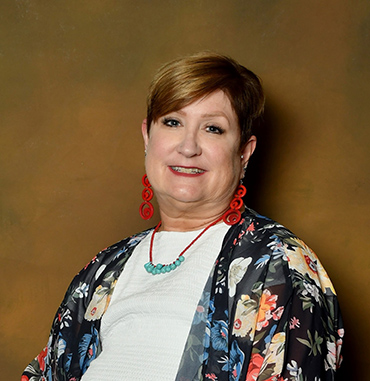The Power of Advocacy in a Cancer Journey
October 2, 2025Categories: Blog, Health & Wellness, Patient Stories, Breast Center
 The Power of Advocacy in a Cancer Journey
The Power of Advocacy in a Cancer Journey
By Amy Russell-Parliman, Director of Imaging and the Ray Moody, MD Breast Center
Garnet Health Medical Center
At Garnet Health, one of the most important messages we share with every patient is this: you are at the center of your care. A cancer diagnosis can be overwhelming, and no two journeys look the same. But no matter where someone is in that journey—from diagnosis to treatment to survivorship—understanding how and when to advocate for yourself can make a huge difference in your mental and physical well-being.
What Advocacy Really Means
Advocacy can mean asking questions, getting a second opinion, seeking resources, and finding support. It means understanding your choices and knowing you have a voice. Education is a powerful tool for patients and families, but so is making connections.
At Garnet Health, our nurse navigators walk beside patients from the moment of diagnosis, helping to answer questions, coordinate appointments, and provide guidance every step of the way. Beyond our walls, there are countless resources available—from national organizations like the American Cancer Society to local support groups. The key is to reach out, ask, and never feel like you have to walk this road alone.
Why This Is Personal for Me
This perspective is deeply personal because long before I became Director of Imaging and overseeing the Ray Moody, MD Breast Center at Garnet Health, I was a patient myself—and I still am.
Twelve years ago, at age 39, I was diagnosed with breast cancer after insisting that a lump I found needed to be checked out. Surgery revealed I had cancer in both breasts and in my lymph nodes. After a bilateral mastectomy and years of treatment, in 2019 I learned that the cancer was metastatic—meaning it had spread to other parts of my body.
Today, I’m grateful to say I have no evidence of cancer. But scans, medication, and treatment will be with me for the rest of my life. My experience allows me to understand both sides of this journey—the clinical and the personal. I know how difficult it can be to focus, make decisions, or even know what to ask in that exam room.
Living Fully, Not Just Fighting Cancer
Cancer taught me that living with the disease is about more than treatments and test results. It’s about living as fully as possible. I know the power of education, but also the importance of compassion. I know the significance of getting answers, and the strength that comes from being connected to others who understand. Most of all, I know that advocacy can make the difference between feeling powerless and feeling in control.
Yes, new therapies and medications are helping individuals live longer. But we also need to care for the whole person, not just the cancer. This can mean palliative care to manage symptoms, supportive care to improve quality of life, accepting help from family and friends who want to give it, or simply learning how to pace yourself and rest without guilt.
Every October, we see all the pink ribbons, but we must see beyond that. It’s about seeing real people navigating real challenges. It’s about equipping patients with the tools and support they need—not just to survive, but to thrive.
For me, working at the Breast Center at Garnet Health is more than a career. It’s a calling. I want every patient to feel supported, empowered, and heard. Although so many of us can’t go back to life before cancer, we can move forward with knowledge, community, and hope.
If you or someone you love is facing breast cancer, know that you are not alone. Garnet Health offers individualized, patient-focused care, extensive supportive and educational resources to guide you through diagnosis, treatment, and beyond. To learn more, visit garnethealth.org/breastcare or call 845-333-7056.